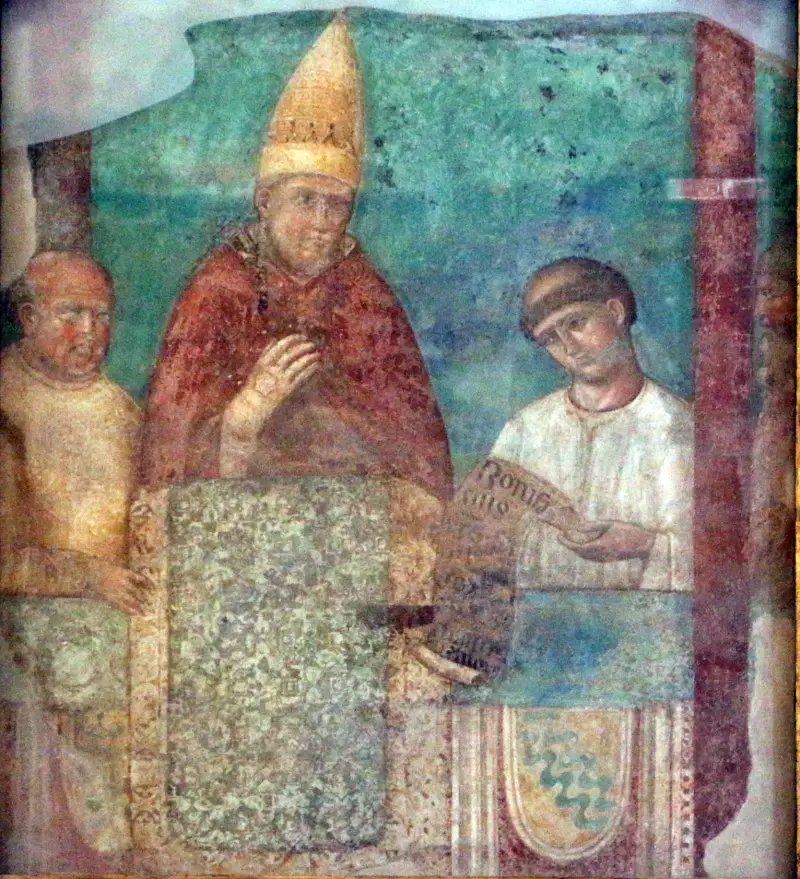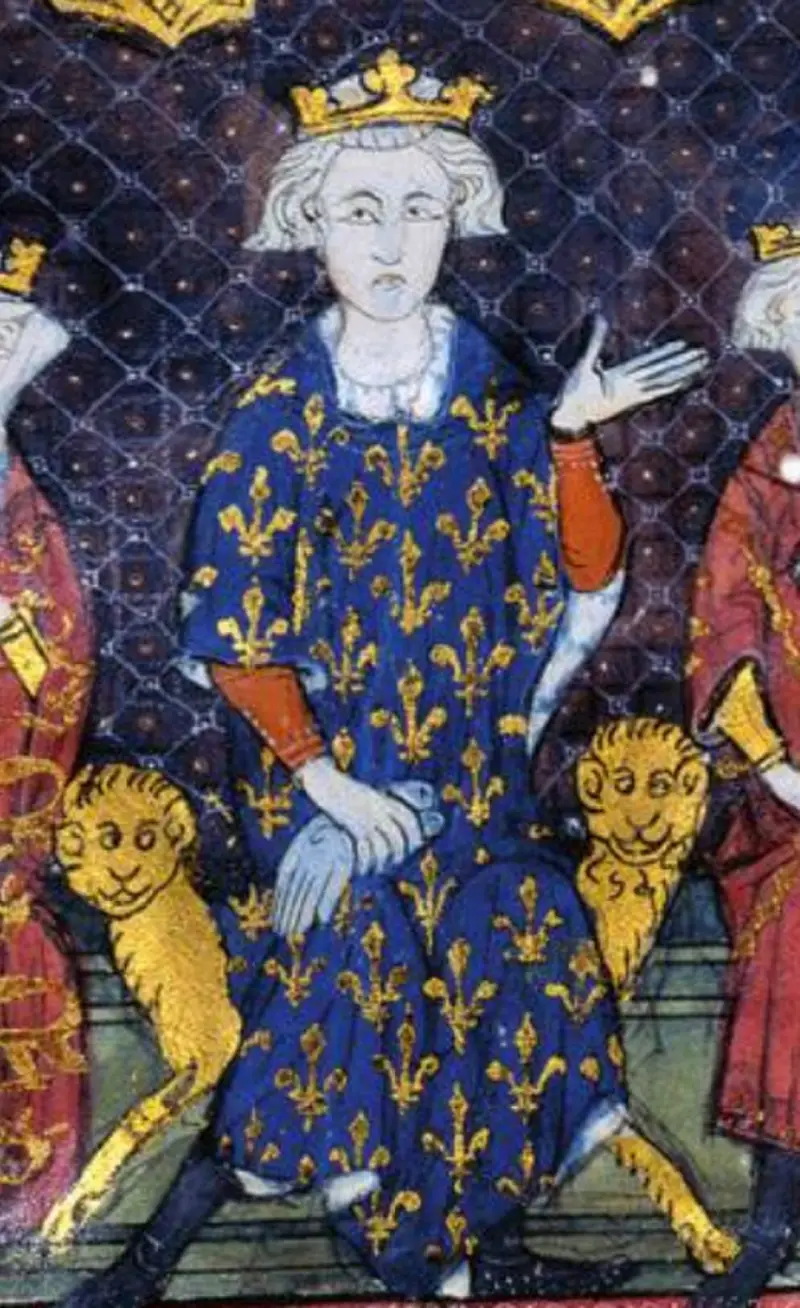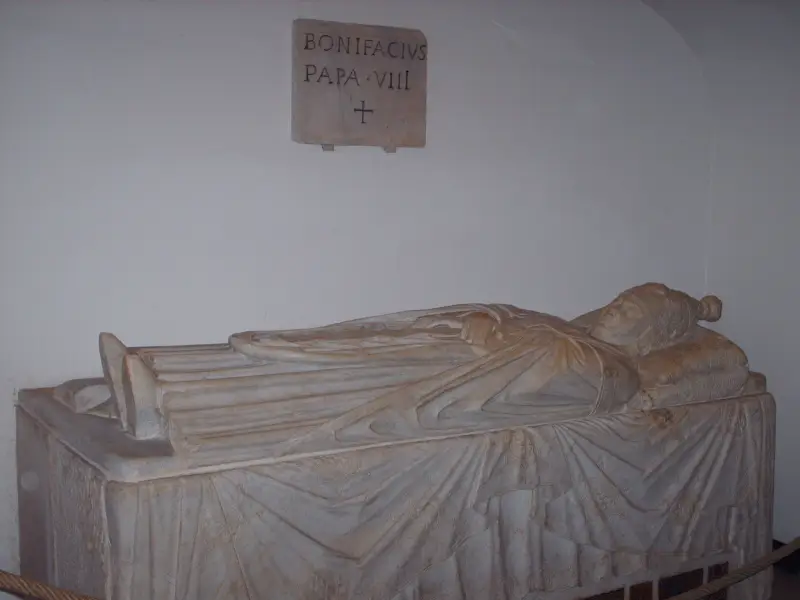The most blasphemous Pope

В stories In the Catholic Church, few popes have been as openly immoral as Boniface VIII. The Pontiff never hid his dishonesty and unbelief, and this made him many enemies. Among them are the king of France himself, and the famous Dante Alighieri, who dedicated the eighth circle of hell to him.
Beginning of a journey
Benedetto Gaetani showed his talents even during the time of his predecessor Celestine V. Boniface VIII was initially a modest monk. Those around him expected that he would be easy to manipulate. But, having ascended the throne of St. Peter, he demanded from the cardinals that they renounce earthly vices.
That is, they had to lose their luxuries earned by honest labor and forget about such innocent gambling. Oh yes, cardinals were now forbidden to visit their mistresses, and poor ladies with broken hearts and empty wallets were left to look for new love.
There were rumors in the Vatican that at night Pope Celestine heard the voice of an angel calling him to abdicate his position. And supposedly it was actually Gaetani who spoke to him through the hole in the wall. Celestine lasted six months before resigning.
The pope's abdication was unprecedented for that time. The former pontiff set out on the return journey to his hermitage and quiet life, but never arrived - Gaetani, elected pope at the conclave in December 1294, arrested him. A few months later, Celestine died of illness.
Proud dad
If Celestine V took his spiritual responsibilities very seriously, the new Pope Boniface VIII was the complete opposite. He consciously devoted himself to the cultivation of all pleasures. He had fun with both women and men. His mistresses were a married woman and her daughter, he was accused of pedophilia, but he did not try to refute this.
He only said that “giving yourself pleasure with women or with children is such a minor sin as rubbing your hands.” Rubbing hands is, of course, a strange sin, but we do not understand many medieval principles. I hope that Catholics are now allowed to do this.
He drank and ate as if there was no tomorrow. Boniface once attacked a cook who served him only six dishes on one fast day. He was a lover of luxury and dressed in the best clothes. And, of course, he was a gambling person.
The Pope denied the basic principles of Christian dogma - the immortality of the soul, the virginity of Mary or the divinity of Jesus Christ. He said that “only fools can believe in such nonsense, smart people must pretend to believe in them.”
One day Boniface shouted at a chaplain who was begging Jesus Christ for help: “You idiot, Jesus was a man like us, and if he didn’t save himself, how will he save you?!” He didn't care if he was accused of blasphemy. The Pontiff had no fear of divine judgment; he did not have to worry about answering to anyone, ever.
Boniface VIII's disdain for religious matters ironically contrasted with his demands. As the leader of all Christendom, he not only expected obedience and respect for his spiritual authority, but also claimed his right to rule over all of Christendom.
The pontiff celebrated the services wearing a crown and holding a sword, shouting: “I am the pope and I am the emperor!” He intended that monarchs, as baptized people, submit to his will. He punished those who opposed it with excommunication or, if possible, physical violence: in 1299 he ordered the destruction of the city of Palestrina, the fiefdom of his sworn enemies the Colonna family. But this was not enough, the pontiff ordered the ruins to be sprinkled with salt, as the Romans did with Carthage.
The Holy Year and Dante Alighieri
Boniface VIII was not a spiritual leader, but he knew how to govern. He came up with the idea of the World Jubilee, the year of “redemption.” This year, pilgrims who go to Rome, visit the graves of the apostles Peter and Paul and, of course, make a material donation, are promised forgiveness of all sins.

The first jubilee or holy year in history was celebrated on a significant date at the turn of the century - in 1300. It was a huge success, which replenished the coffers of the Vatican and Rome: about thirty thousand pilgrims visited it every day, which had not happened since the times of the Roman Empire.
Roman pilgrims were required to visit the Basilicas of Saints Peter and Paul every day for 30 days, visitors - every day for 15 days. The flow of people was such that Rome came up with the first traffic code in history, which also regulated the obligation to drive on the right side of the road.
Among this crowd was the pilgrim Dante Alighieri, whose vision of this city engulfed in vice inspired some of the poems about hell in the Divine Comedy. The great poet never felt sympathy for the pontiff whom he sent to the eighth circle of hell and whom, in addition to his many shortcomings, he blamed for his personal misfortune.
Dante was a member of the White Guelphs, a political faction that opposed papal control of Florence, the poet's hometown. He was sentenced in absentia to death and confiscation of property. And Dante spent the rest of his life in exile.
In the eighth circle of hell, dedicated to deceivers, Dante placed Boniface in the third ditch, where the Simoniacs, priests selling positions, were tormented. The sinners were driven in upside down, with fire running through their protruding heels. Each subsequent sinner drives the previous one deep into the ground with his head, taking his place and suffering from fire on his heels. Moreover, when Dante placed Boniface in this circle of hell, the pontiff was still living.
Philip IV and the death of Boniface
Boniface's domineering and hot-tempered character made him many enemies, both inside and outside the church. The French king Philip IV did not want to comply with his demands and issued a decree banning the export of money and valuables from the kingdom. Now the Vatican could not receive church tithes. France was the main source of tithe revenue, and Boniface excommunicated Philip. The latter publicly burned the papal bull and convened a council, which accused the pope of heresy, impiety, simony, adultery, murder and witchcraft. I think that the accusations, with the exception of the last one, were completely justified.
In Rome, among the clergy and nobility, there were also many who wanted to get rid of this tyrannical pontiff. For the sake of overthrowing him, his sworn enemies entered into an alliance with the French king and state adviser William of Nogaret. The latter had outstanding scores with the church, since his parents died at the stake of the Inquisition.

Philip IV
In September 1303, rebels stormed the papal palace of Anagni in the outskirts of Rome and captured Boniface. Legend has it that, faced with his refusal to surrender, one of the invaders struck him. Perhaps it was not a physical, but a symbolic slap in the face of the pope’s impotence.
Although the pontiff had a despotic character, he did not lack allies. The cardinals, nobles and townspeople of Anagna sent soldiers to free him, forcing the conspirators to flee. Boniface returned to Rome and became seriously ill with gout and kidney stones.
The spectacle that awaited him dealt him a crushing blow - in his absence, the crowd plundered the Lateran Palace and stole everything - even horse feed. The pontiff died just a few days later, on October 11. Even agony did not break his character: on his deathbed, he continued to threaten anyone who dared to object to him, cursed everyone and everything, and died the same way he lived - blaspheming.

But his death was not enough for the French king, who did not calm down until he convened a trial of the late pope. This already happened in the 9th century - then the corpse of the former Pope Formosus came to trial. However, in Rome after the death of Boniface the situation changed: the Roman Curia was not interested in supporting the accusations. If they were found to be true, they would deal a serious blow to the authority of the church.
In the end, Philip agreed to give up his posthumous revenge in exchange for something much more profitable - the new Pope Clement V was supposed to suppress the Templar Order and confiscate its enormous wealth. But this is another, no less interesting story.
Information